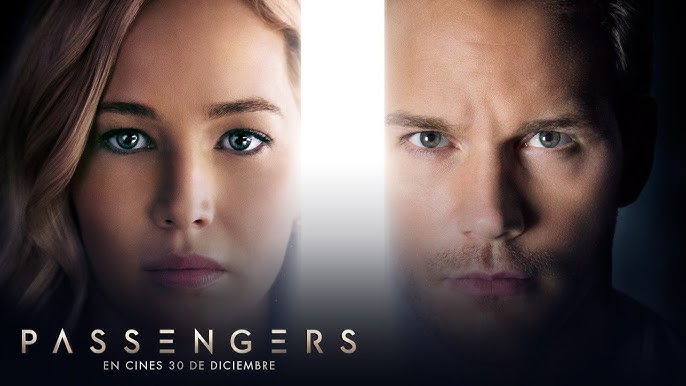In the realm of science fiction cinema, “Passengers” (2016) stands out for its exploration of a compelling moral dilemma at the heart of its narrative. Directed by Morten Tyldum and featuring performances by Jennifer Lawrence and Chris Pratt, the film is more than just a visually stunning space adventure; it’s a deep dive into the complexities of human choice and the consequences that arise from it.
The Central Moral Dilemma
At its core, “Passengers” revolves around a profound ethical question: How far is one willing to go for love and companionship? The film’s plot is triggered by Jim Preston (Chris Pratt), an engineer who, after waking up from cryogenic sleep 90 years too early on a space voyage to a distant colony, makes the controversial decision to awaken Aurora Lane (Jennifer Lawrence), a fellow passenger. This choice, driven by his own profound loneliness and desperation, sets off a chain of events that raises significant moral and emotional questions.
Jim’s decision to wake Aurora is arguably the film’s most pivotal element. On one hand, his actions are rooted in a desire for human connection, making them relatable and understandable. On the other hand, the decision to awaken Aurora condemns her to a life of isolation on the spaceship, stripping her of the future she would have had on Homestead II. This creates a stark ethical conflict: Is Jim’s need for companionship sufficient justification for altering Aurora’s destiny?
The film delves into the ethical implications of Jim’s decision, sparking discussions about consent and responsibility. By awakening Aurora, Jim not only imposes his own fate upon her but also makes a choice that fundamentally changes her life without her consent. This raises questions about the nature of free will and the morality of making such a significant decision unilaterally.
Aurora’s eventual realization of the circumstances surrounding her awakening adds layers of complexity to the story. Her feelings of betrayal and anger highlight the emotional consequences of Jim’s actions, and the film explores the tension between personal desires and ethical responsibilities.
Emotional and Dramatic Tension
The moral dilemma in “Passengers” is not merely a philosophical exercise but a driver of emotional and dramatic tension. The characters’ struggle with their predicament reflects broader human concerns about loneliness, choice, and the search for meaning. Jim’s internal conflict, coupled with Aurora’s feelings of betrayal, creates a dynamic interplay that keeps the audience engaged and invested in their journey.
The film’s exploration of these themes is further enhanced by the strong performances of Lawrence and Pratt. Their portrayals add depth to the characters’ emotional struggles and highlight the complexity of their situation. This personal dimension amplifies the impact of the film’s ethical questions, making them resonate on a more intimate level with viewers.
Conclusion
“Passengers” is a film that challenges audiences to consider the ethical dimensions of human decisions and the consequences that ripple out from those choices. The key factor driving the narrative is the moral dilemma surrounding Jim’s decision to awaken Aurora, which serves as a catalyst for both the film’s dramatic tension and its exploration of deeper themes. By framing this dilemma within a visually stunning and emotionally charged context, “Passengers” offers a thought-provoking reflection on the nature of human relationships and the complexities of choice.







